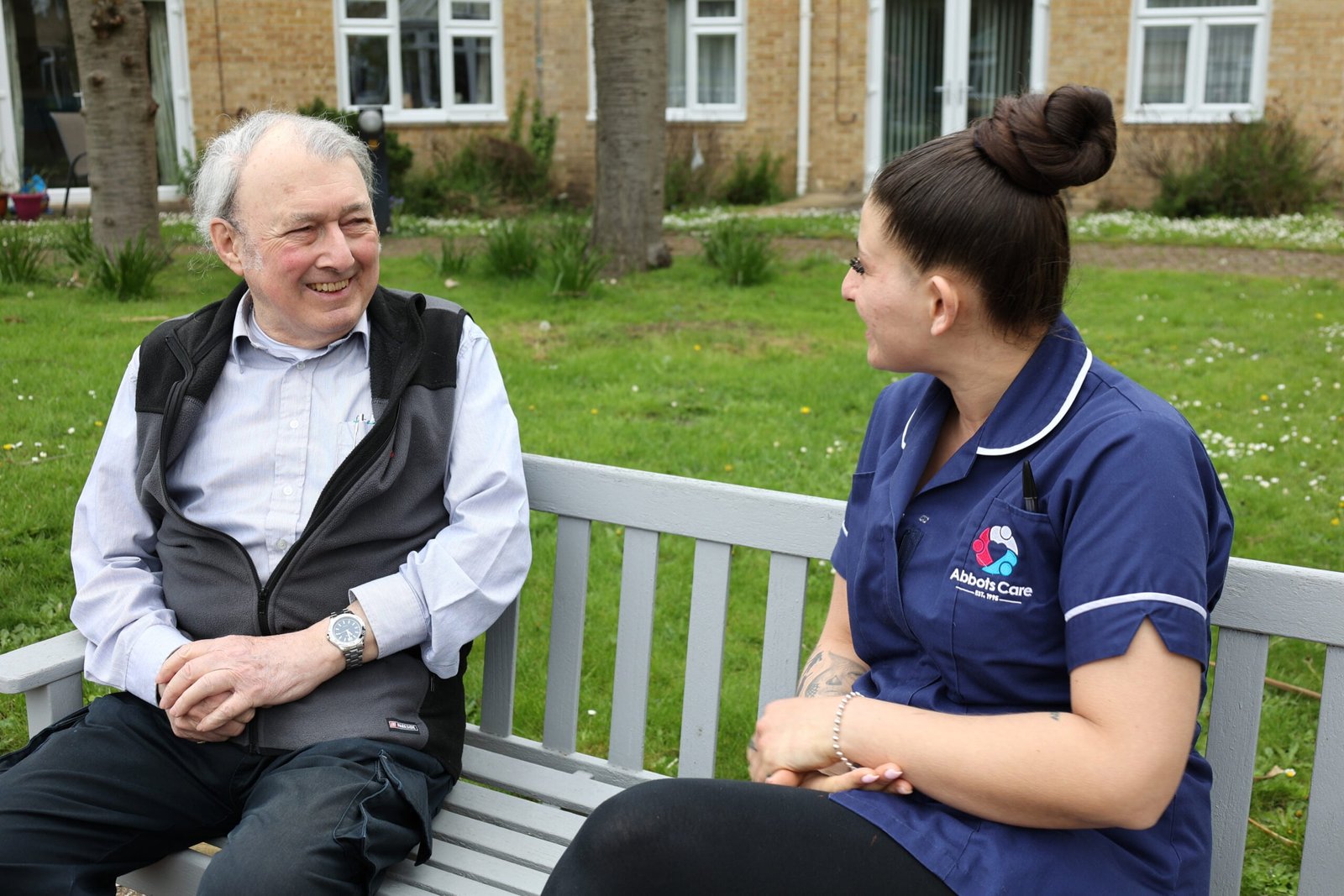What does a Care Worker do?
So what does a carer do?
Simply put, a Care Worker performs a range of tasks, depending on the needs of the person they care for. It could be medical assistance, helping out with housework, preparing meals, or just having a chat. Find out more about what a Care Worker does below.
Have you ever wondered if you’d be the right fit for care? Or are you ready to make the first move into a career in care? With such a variety of roles on offer, it can be difficult to find the answers to the questions you want to ask. So what does a Care Worker do, and what does a day in the life of a Care Worker look like?

What does a Care Worker do: A day in the life
Your day may start bright and early, because some of our care service users need help getting out of bed, dressed and washed ready for the day ahead. You might then help them to prepare breakfast or take medication. Because often the people we care for are elderly, or vulnerable, they appreciate your company, so you’ll be doing lots of chatting and catching up too.
On your next visit, you might be helping with the washing up or a quick dust of the sides. Something as simple as a zip around with the hoover can make a huge difference to our service users, who often find tasks like these difficult. As always, you’ll be chatting away, listening and making someone’s day that little bit better and brighter.
Did someone say lunch? Next up you might be helping to prepare a meal or, if the person is bed-bound, you could be turning them to a more comfortable position. Maybe you’ll change a dressing, organise medication or help with laundry.
Later in the day, you could be visiting someone with dementia, so they might need reassurance, guidance and some help with organisation. In these circumstances, a friendly face can help to make sense of the world, so it’s a good job that to those who need us, our Care Workers are often seen as friends too.
Just before the evening, you could be asked to help turn down a bed, prepare an evening meal, or help the client to use the toilet before settling down for the night. Depending on your role, you may also be asked to assist someone overnight. This could be in the case of providing respite for carers, dementia care, live-in care or overnight care.
Care Worker responsibilities
The duties of a Care Worker are varied and specific to the person who needs care. However, they could include:
- Personal care such as dressing, washing, lifting, giving medication or liaising with other medical professionals.
- Practical care including household tasks (hoovering, tidying, dusting, washing the dishes), paying bills and cooking meals.
- Emotional support and companionship.
Care Worker skills
Ideal skills for Care Worker include:
Good communication
This comes in handy for every interaction you will have, whether this is with a service user, or with members of your team. Being able to communicate effectively makes things much easier for everyone, especially those who depend on you for care.
Patience
Some service users require lots of patience because they need additional time to understand or act on things. Having the ability to be patient, whatever the situation, is one of the key Care Worker skills you’ll need.
A passion for care
If you want to care for people, make a difference and do a good job, then that’s a great start! Because clients depend on their carers to provide help and support, a passion for care helps you to do this to the very best of your ability.
Ability to adapt to change
No two days are the same in care, so the ability to adapt to change is ideal. This will help you to move through each day as it comes, with the changing needs of each and every person you care for.
Sensitivity and tact
Care situations require sensitivity and tact at all times. As a result, it becomes second nature to Care Worker’s to always think about the implications of a situation and how best to navigate it.
Respect
Respect for people is paramount in care. Have respect for those using care services, their way of life, their interests, hobbies and wishes, as well as respect for service users’ families and your colleagues.
Empathy
The driving force behind most applications for a job in care, having empathy in abundance is a standard for a fantastic carer.
Eagerness to learn
If you want to understand more about conditions, health care, or just more about how to improve the care you provide, an eagerness to learn fuels this. The more knowledgeable Care Workers are, the better the care they are able to provide, especially for those with complex needs.

What do Care Workers do at Abbots Care?
Our Care Workers provide the very best in care to each and every one of our service users. With dedicated in-house training, mentor support and guidance; our Care Workers are empowered to give their 100% every day. As a result, our services are award-winning, our colleagues are well looked after, and the Abbots Care team continues to inspire the next generation of Care Workers.
Like the sound of working with Abbots Care? For a job with full training, fantastic incentives and pay, browse our open vacancies . Discover more about working with Abbots Care.
Just before the evening, you could be asked to help turn down a bed, prepare an evening meal, or help the client to use the toilet before settling down for the night. Depending on your role, you may also be asked to assist someone overnight. This could be in the case of providing respite for carers, dementia care, live-in care or overnight care.